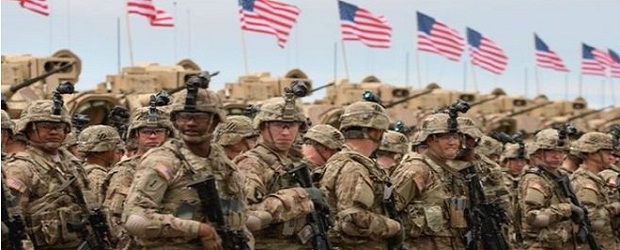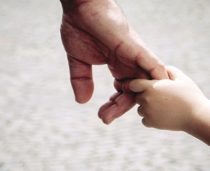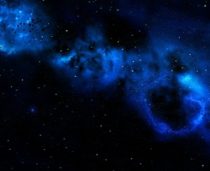That was an interesting time. I left that situation, and moved in with Joan. Joan was from Tsasdi. Tsasdi is a place where there was a sort of metaphysical church that I attended in the late 70’s and early 80s. I met many of my very influential friends there, Max, Terry, Tara, Joan, and Deborah-Lee.
There was a gentleman by the name of Gary McClawer, who was the head of the local church that we were going to. It was the church of Tsasdi. They had leadership in California, and at any rate, I went there and they would do a Sunday service. Then, they would do like a Wednesday night healing night kind of a thing, and they had various study groups and they would have like psychic fairs, and people would come and do readings and all kinds of things like this.
I should cover the Tsasdi years because that’s kind of interesting. When I turned 18, I moved from Sedona to Phoenix. I got a job working over the summer at a restaurant. I couldn’t work for my dad anymore, I just couldn’t handle it, and I was dead set on leaving. There was a job I got working at a restaurant, work that I could walk to, and that was the one and only time that I ever tried using a needle for drugs, when I worked at this restaurant.
There was a cook there who was a little on the wild side, and his girlfriend or wife, I’m not sure which Okay, yeah, and I don’t think it had any effect at all, I think it was like cold medicine or something like that, and so I was a child of the 70’s, just graduated from high school in 1977, you know, so I was right in the thick of the whole thing. I smoked a lot, and I didn’t like drinking a lot, after watching my parents but I did smoke a lot.
So at any rate, I tried these IV drugs or whatever it was. It was just silly, and then the next day or the day after we all had to go and get our permits. You have to have a TB test and something else to get a food handler’s permit, and I think that each of us. I know that I had a big old bruise on my arm, and I know one of the other guys did. Everybody that worked at the restaurant was using at that particular time, and it was silly because it had no effect. It was something that I did as a kid. It was the only one time that I did that. That was probably good that I lost interest in it right away.
There was a time after I got out of the army but I never did anything with anything else. I just smoked pot and I used to drink a little bit. It didn’t suit me well, so that had to go by the wayside. I spent 20 years in a program, so I figured out what I must do at that point.
In 1982 I was living with Joan, who I’d met at the Church of Tsasdi. I met all of these friends there. Eventually I guess in some ways I’m a force to be reckoned with. Some of these folks and the gentleman that runs the church asked me not to do what I was doing. He used to do a laying out of hands practice, which called “healing” and he thought of working with the aura, balancing the chakras and stuff like this. I thought that that’s all nice and well, and if I think about healing someone, and I’m touching them, and I’m thinking about them being healed, it’s going a long way.
Then I decided that what I needed to do was to increase the drama, and therefore increase the believability and the effectiveness of the whole thing, and so I started to mumble. I didn’t say anything in particular, I just mumbled, quietly to myself, as though I were saying a prayer. I was saying a wordless prayer. There’s no doubt that I was making sounds and that I was having intention with the sounds and that I intended the person to be healed.
He approached me, and he said, “You have to do things the way that we do it here, or you don’t do them at all. Don’t add anything to it.” He says, “If you want to go get your own church, go get your own church.” That was good advice really. I probably should have listened to him right then and there. However, I had several more adventures to go through, and eventually I wound up moving out of the commune and moving in with Joan, whom I then married before I went to the army. This is 1982.
In 1982, I’d been out of high school for a new year’s. I had had a few jobs, none that I had liked, none that I wanted to continue with. My friends were all smoking pot and drinking, and most of them couldn’t hold a job. I was kind of unhappy about the whole thing, because I just looked around and I saw that nobody was doing anything with their life that was going to amount to anything, and I didn’t like that idea. When I was living with Joan I had a sensory isolation tank that we purchased, which is something that you lay in. It’s full of salt water, and you just lay in it and it’s buoyant, so you float, and then you meditate. You just close your eyes and you’re floating in water that’s maintained at the exact skin temperature, which I think is like 86 or something like that. It’s not the same as the internal temperature, the skin temperature is lower, but whatever it was it maintained the temperature. There was a heater and there was all of these things set up in there and you could just go in and just be quiet. I was in the Army for 3 years and went through my basic training in Fort Sill, Oklahoma. The advanced training I went through was there also. What I enlisted to do was field artillery meteorology. I was a meteorological crewmember, which meant basically that we used a big radio receiver that we would set up wherever we went and send up balloons that had transmitters on them. It would transmit back information about air density, temperature, and wind speed and direction, and we would take all of that information and plot it on some graphs. It would go from the pillory to the firing center, and the firing center would adjust the guns according to the weather data, the metro.
That’s what I did, and we had a few flights at the beginning, they were called flights. We had a few high level flights that were done for AA, because I got there after they were done doing a lot of work for them over the eruption of Mount St Helens. It was the nearest upper-air weather data to Mount St Helens. They were on 24-hour flights for a long time, when that first erupted, and that meant that somebody was down there setting up weather balloons every 2 or 3 hours. So they were running 12-hour shifts, and just day after day they were just running flights and doing all of the stuff that they had to do, and the equipment was World War 2 equipment. It wasn’t really up for the task.
It wasn’t really up for what we did to it either you know. We were hauling it around and bouncing it around in trucks and over terrain and all kinds of things and setting it up, although Mike Knowlen was our mechanic, and he was a good guy, if you run into him, say hi for me. Anyway, he was a mechanic. He kept the equipment running, but it wasn’t easy.
We had backups of a lot of it, but right after I got out, they brought in new stuff that apparently you can release. It’s all on a trailer and you can release a weather balloon and then go drive, and as long as you still have line of sight on that weather balloon you don’t even have to stay in the same place you were when you released it. The computer will adjust for your location when it computes the data, so that’s pretty cool if that really works.
It’s hard to imagine how often you get the kind of terrain that would enable you to have line of sight from a balloon though. If it’s a high wind situation it would be very difficult because the trajectory keeps the tracker flat, as opposed to pointing straight up. If it’s a calm day, you could point it straight up. You could drive all over the place, but if it’s a windy day and there’s any kind of trees or mountains or anything around, it would be hard to maintain line of sight.
Nevertheless, when I got into the army, I don’t even think I’m up for talking about the army, so much happened. Larry Minchu was my best buddy. I met him in the advanced training. He was so funny. We had co-ed dorms, and I think he was in the hallway in his underwear or something like this, like the first couple of days that we were there, and some girl came through the hallway and said something, and he said, “Oh, sorry, I set my chicken free.” He, you know, went back and put some clothes on.
I just thought the idea of it was pretty funny. Well, I don’t remember exactly what he said, but “set your chicken free” was part of it. He said, “Oh I thought we were just supposed to set our chicken free?” or something. So yeah, he was my friend the whole time that I was in, and we got a room together on base.
I had married Joan, I had considered what I would do in advance, and I don’t know exactly why I thought that would be a good idea of us, but I did. And so I married her, and it didn’t last much after the time that we got out. I was in the dorms with her, the barracks rather, with Larry for several months, over a year I think. Eventually Joan moved up there and we got a house and we moved off base and that sort of thing, but Larry was very instrumental.
He had this little yellow car. It was like the mercury version of a mustang. Anyway, it was a pretty cool little car, and we’d drive all over the place with it, and that was great, so sharing a room with him was really good. We both smoked a lot of pot. Most of the guys were buying pot by the gram, and it was like $10 per gram. It was what they called “greenbud” which today would just be flowers. Most of these flowers and strains that are around today have their history in UDub, the University of Washington. They created this super potent pot, and that’s what we were all using. I decided that I didn’t want to spend that much money.
We made friends with a guy, and we would drive. He was just a civilian who lived in a completely different town, no military at all, no nothing, and we would drive to this town. It was like 30 miles away from the base, and by what was usually Columbian I think, it came in coffee cans, even though they said it was Thai. I’m pretty sure it was Columbian.
It only makes sense. I mean it could have been some other brand, but it come in these big coffee cans and it would be all compressed and like whole plants almost in there. ‘There wouldn’t be the big main stem, but there would be big stems and they just twist the stems up and shove them in a coffee can and you’d get this like wafer.
That’s mostly what we were doing, and then we would just bring it back to the barracks and help our friends out, and smoke as much as we wanted, and just had a good time. We drive all around Takoma in that little car. Larry was a great guy. We just had a lot of fun together, and I always remember him. I made some other friends too, Robyn, and of course Mike I already mentioned, oh and Moses.
I almost forgot about Moses. Moses, that was what we called him, though it wasn’t his actual name. He was married to an NCO, but he was from Europe. He rank was busted down to private. I think for the third time or something like this. He would always make up stories, and he decided that I was his ride, like we were friends, and he was a cool guy.
He was a little on the wacky side, but he would, like every day, have some reason to leave the base. We took his cat to the vet over and over again, and I don’t remember what all we did. He would always have some excuse to get out of work, and then he would make me drive. I remember when MTV first started, because I was there.
Well maybe not the very first, I don’t think I watched the very first song play on MTV. I watched a lot of it, thanks to Moses, because he was always coming up with some reason to go off base to do something. I almost forgot about that guy, he was fun. But I mean I never did any work. There was no work to do.
They would make up work. We would go sort through balloons, most of which were so old that they were together. You couldn’t separate the rubber anymore. The rubber has softened and become like one lump. Most of the balloons were just bad. They got a big shipment of an old balloon stockpile when they started the upper-air-ops for Mount St Helen’s. Anyway, we had some crazy adventures. We did all kinds of crazy things, and we painted the undersides of trucks with designs.
They had a firing center where you could practice shooting your guns and a wall that was about four railroad ties high. We drove a two and a half ton truck, with dual axles in the rear. The rear had six wheels on each side. It was a big truck.He was able to drive it to a lot of places.
It’s hard to describe what he did. There were wood from some trees or some stumps jammed in between the tire and the split rim. He hit the top of his head on the inside of the cab. There was blood on the inside roof of the cab. The next day, he went on leave. We didn’t even know what had happened exactly.
There were about 16 of us on our team, and we did the weather observations, the upper-air observations and everything. 16 included all the NCOs and our warrant officer. We had warrant officer, and we had a couple of warrant officers. They eventually brought one in with some rank, and he had some rank, so no one told him what to do.
Our first warrant officer was a CW1 or W1. I don’t remember what they called them, so he was just a first-grade warrant officer. He got what’s called an article 15 and some military discipline because he and enlisted girl, because there were women on my team, in my unit, were drinking. They were drinking beer while they were driving the military truck from Fort Lewis over to the Yakima Firing center on the other side of the state.
It was this way. There were five gun battalions. Each battalion is made up of like 4 or 5 batteries. Each battery had X number of guns. Any time a battery went to the field, they thought they needed weather data. They would send us. We got tired of it, because you couldn’t maintain a life like that. I wasn’t home enough to have much of a relationship. I was just in the field all of the time. It would be several days at a time. A lot of times we would be gone all week. We’d come home on the weekends and we’d go to the field on Monday. It was just a mess.
One of the guys borrowed a radio teletype truck. This is all army stuff, so this has got a radio teletype in it, again WWII equipment. Nevertheless it’s all inside this thing. He went to go see his wife who’s staying at a hotel. She decides to go and stay in a hotel while he’s in the field on the opposite side of the state. He’s like, “Okay cool, I’m going to go to the hotel and be with my wife.” It might have been okay, under some circumstances.
He might have gotten away with it if he hadn’t just driven the truck into the covered driveway there, the little reception area for the hotel or motel. He ran into it. The bricks of the building moved about an inch and a half or two inches. He must have hit this thing hard. I don’t know all the details of the building, but he hit the thing in a truck he borrowed.
Everybody was in trouble at that point. They called me in off leave because they wanted to chew us out over this situation. I was at home and they called me in. Now I went in, but I dressed all in white. I brought candles and I handed out garlic. There must be something evil there, since there was no war but I got called in off leave. It must be because of something evil. I was trying to protect everyone from burning candles and handing out garlic.
They were like, “Are you trying to get out of the military?” And I’m going, “No, I’m just trying to protect myself.” That didn’t help really. By then it just started getting crazy, and we became our own unit. We did our own physical training. This did not go over well. Everything that could fall apart did fall apart. Most of the time we just caused it to fall apart.
We’re doing this physical training and we got this sergeant. I don’t remember his name. He really was the worst. He was deliberately messing with us. The rest of the time he wasn’t even smart enough to know what was going on.
There was another sergeant, Sergeant Tankersly, who was kind of the NCO IC, and he was a great guy. I liked him a lot. He had to work with this other sergeant who I couldn’t believe how bad he was. Anyway, he was in charge of PE one time, because we happened to do our own. So we went on a run. In our unit, nobody liked to run or do anything like that, none of us did. In some units a lot of people do.
It was always a lot more effort than it should have been, and kind of a joke. We’re running with this sergeant. He’s in charge so we’re following along, which is what you do in the military. We come to this hill, and the tradition us that we run up the hill.
He didn’t run up the hill. He came to the hill and he’s like, “Oh, I can’t make it.” Robyn Bangard and I took off up the hill. “Come back down here, that’s a direct order!” We didn’t even stop and listen to his chatter or anything like that. We knew he was going to wimp out going up the hill. There was just no way.
So we took off running up the hill, and then we just ran in circles and waited for them. When they didn’t come we ran back down and joined up with them. That had to have been so embarrassing for him. They sent us to the CO of one of the firing batteries. They sent us over there and they made us wait like half a day while they decided what to do with us. This sergeant was running around yapping at everybody. It wasn’t really a good thing, and we just kept bringing that up. Our CO was in charge of us, the weather guy. We had the radar operators. There were map plotters and guys that did stuff on a map. The survey crew who would drive up and down and check elevations and things like this. They helped to triangulate information for everybody about where the shots were coming from. At any rate, that’s what our CO was in charge of.
There were a lot of kinds of trouble that we didn’t get into that the other guys would get into. Our crew wouldn’t get into drunken brawls that much. We weren’t out stealing; the other guys were more likely to be doing that kind of stuff.
The thing is that nobody had any respect for this sergeant. He would tell us to do things that wouldn’t make any sense. Half the time we just wouldn’t do it. We’d go do something else. We’d do what should be done, instead of what he told us to do.
We did what he said, most of the time, depending on like what the topics are. He’d have us camouflage some vehicles one time, except that he just kept messing it all up. Every time we get the camouflage situated, we then are asked to move a different pole to a different place. Then the camouflage wouldn’t be right anymore.
He was messing with us for a long period of time. Eventually, we just quit listening to him. We just set the camouflage up so that it was correctly concealing the vehicles. There was no point. He was trying to teach us a lesson and we weren’t having it.
We played along with him for a little while. We just did it and got it over with and went inside. When they started trying to tell us about it, we’re like, “What are you talking about, we did the job.” It’s really hard to argue with people who are that much smarter than you. I don’t know what the story was exactly with that situation. It was just so difficult and so challenging.
A lot of stuff happened during the army years, and I loved it and hated it. Like having that Sergeant, there was just no way to reconcile how awful the experience was with anything else. It just became something that bonded the rest of us together.
We had a warrant officer that got in trouble, and they took it out on us. All of the enlisted people had to suffer. Well we were a little out of control, I have to tell you. We were out of control, but we didn’t become really any more in control as a result. The only thing that really happened as a result that it made everything really interesting. I don’t know that I would wish it on my worst enemy. In fact I said that when I was there, “I wouldn’t wish this on my worst enemy.”
I really loved parts of it, like having something that had to be done, and a group of people. Each of us knew how to do most of all of it, and everybody knew how to do their part. We would just go in there and just knock it out. Nobody had to be told what to do. Everybody just worked and did it, and it was such a smooth way to be. That kind of camaraderie and that kind of devotion to one another was really special. I really appreciate everybody that was there, Regina, Todd. There was another guy that was there and I can’t think of his name off the top of my head. It might have been Jason or Jeremy or something.

















